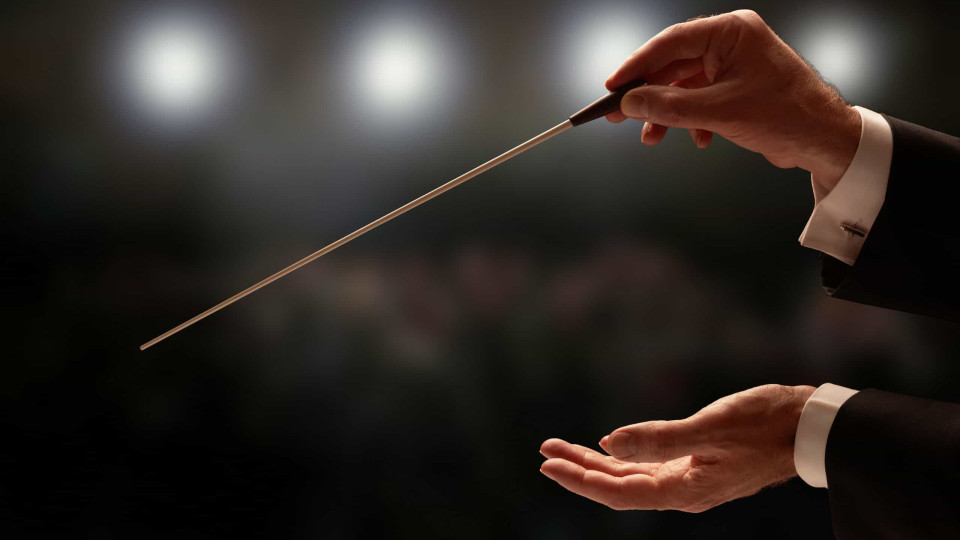Researcher maps cycles of pleasure and how music 'orchestrates' the brain
Music and how the brain responds to it, the anticipation of pleasure, the search for meaning and "a life well lived" through artistic sharing are the focus of Oxford neuroscientist Morten Kringelbach's work.

© Shutter Stock

Lifestyle Música
The neuroscientist, who has dedicated his career to studying the stimulation and retro stimulation of the brain, spoke to Lusa on the sidelines of the 14th Symposium Beyond and Beyond the Brain, of the Bial Foundation, at the Casa do Médico, in Porto, this year dedicated to creativity.
A professor at the British University of Oxford and at the University of Aarhus, in Denmark, Kringelbach presented at the symposium, which ends today, a speech on the role of music in connecting to the neuronal cycles of pleasure and to the creation of meaning.
Experiences on this basis, he explained, lead to suffering but also to flourishing, in a lecture in which he presented the results of a research on how jazz improvisation orchestrates a sense of 'eudaimonia', a term from ancient Greece explored by Aristotle that refers to "a well-lived life".
This feeling involves the anticipation of pleasure -- the feeling that one knows a given melody -- as a starting point for triggering neuronal pathways of pleasure, with the brain then being surprised by the improvisation.
"Music reveals who we are, and reveals something about our potential," he explained in the lecture, which ended with a video of the city of Porto accompanied by "Amar pelos dois", by Salvador Sobral.
The researcher came to Portugal for the first time in 1986 and has returned frequently, especially to the north of the country, and is "slightly obsessed with fado".
"There is something very interesting in suffering, but also the joy present in this suffering. This can be seen in 'saudade'. This idea of feeling a bittersweet longing for other times," he says.
This perspective, moreover, serves as a summary for the argument of suffering and flourishing that he has worked on, with music "crossing cultures, which is why one can have 'saudade' in the soul" without being Portuguese.
"That is why I can connect to fado. I feel, there, that I flourish. I feel the suffering, but also the potential to flourish. And that is why I am interested in music, I think, because it communicates emotions," he adds.
Music makes obvious the "general principle that we are machines that produce and anticipate patterns," seeking an "element of novelty, of surprise, that maintains curiosity," precisely where one of the problems of depression lies.
Kringelbach has a background in architecture and plays piano and guitar, deepening the relationship with art to reach the "feeling of joy, of sharing it and communicating", which he defends in his work.
Creativity is, for the researcher, "playing, throwing things out there and seeing what comes out," a shamelessness that allows "not creating an altar that one has to go to", nor "this thing of tortured art that does not speak to anyone".
"The ultimate goal, according to Aristotle, is to live a meaningful life, and this is not being a tortured artist, in splendid isolation, it is about sharing this joy. I ended up talking about love because it really is about loving, sharing life," he explains.
The neuroscience work he has developed together with doctors, artists and other professionals has 'threatened' some people, he reveals, but he defends the science behind the understanding of pleasure cycles and also the need to "communicate" what is done to everyone.
"There is nothing better than playing for people, playing with people. It is the same feeling of joy that I feel when I am giving a lecture. That is why I spend so much time doing this, because if it is not communicable, it does not matter. But I really try to listen, because all good communication involves listening," he concludes.
Read Also: Cem eventos celebram a Cultura em 2024 na Casa de Mateus em Vila Real (Portuguese version)

Descarregue a nossa App gratuita.
Oitavo ano consecutivo Escolha do Consumidor para Imprensa Online e eleito o produto do ano 2024.
* Estudo da e Netsonda, nov. e dez. 2023 produtodoano- pt.com








